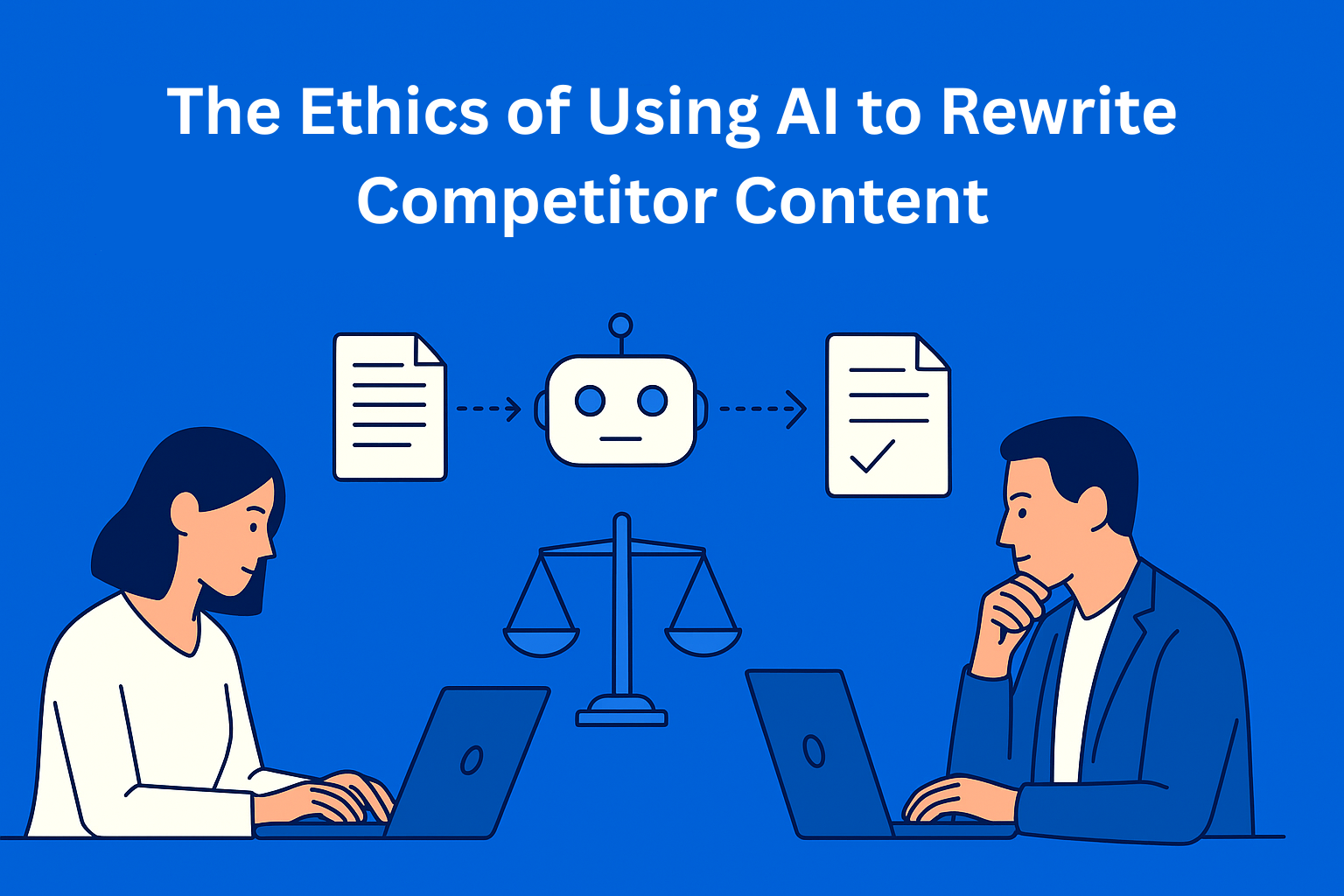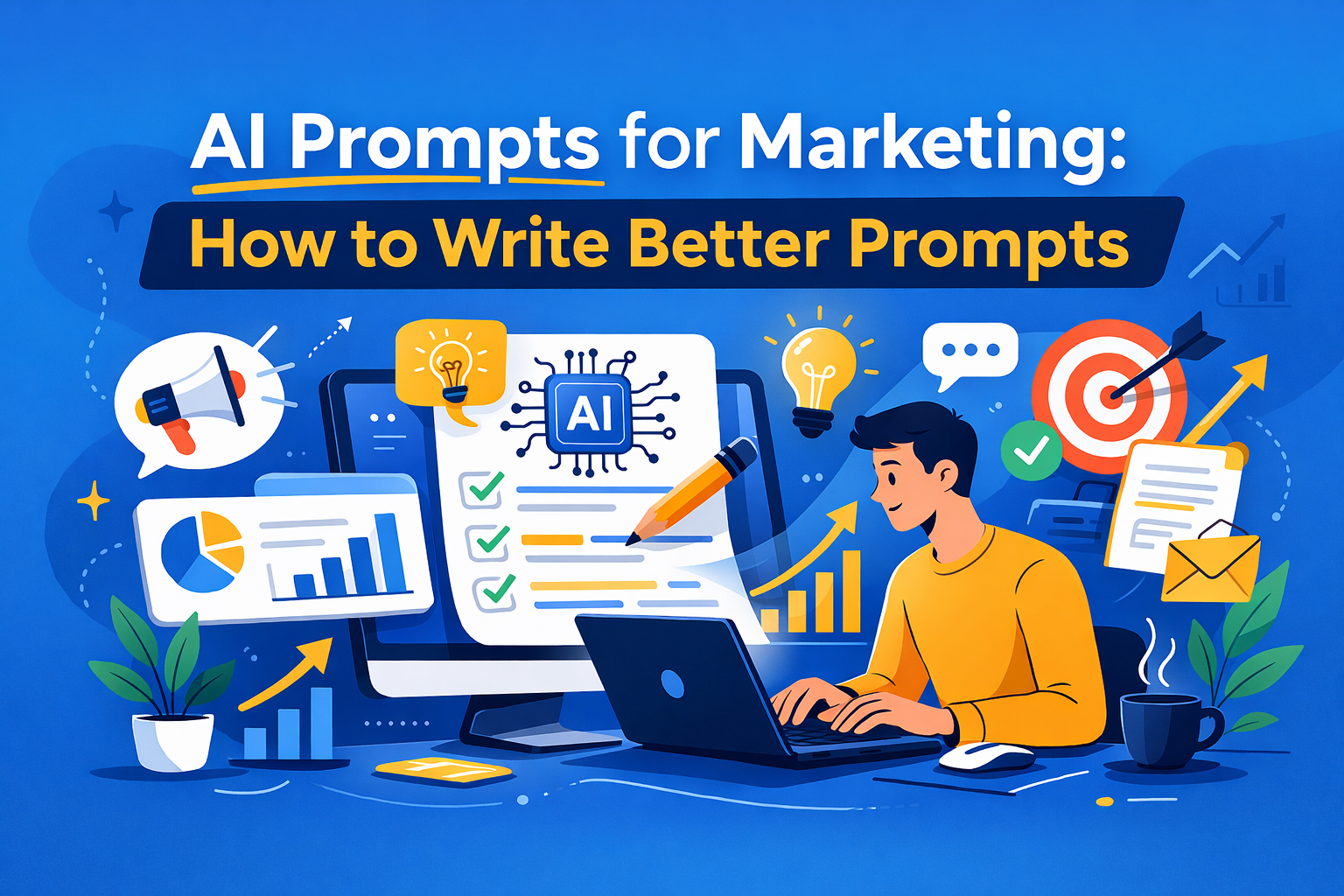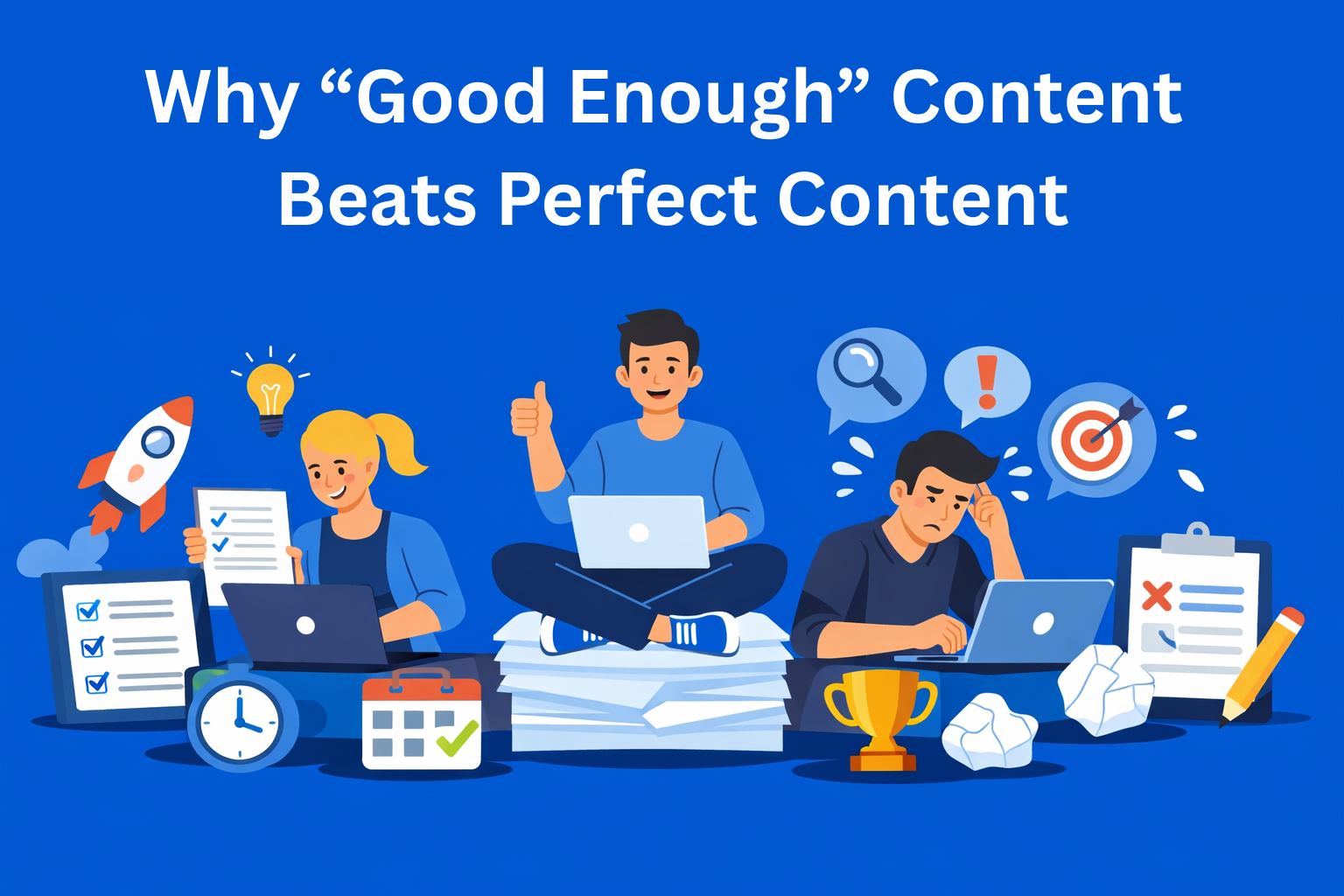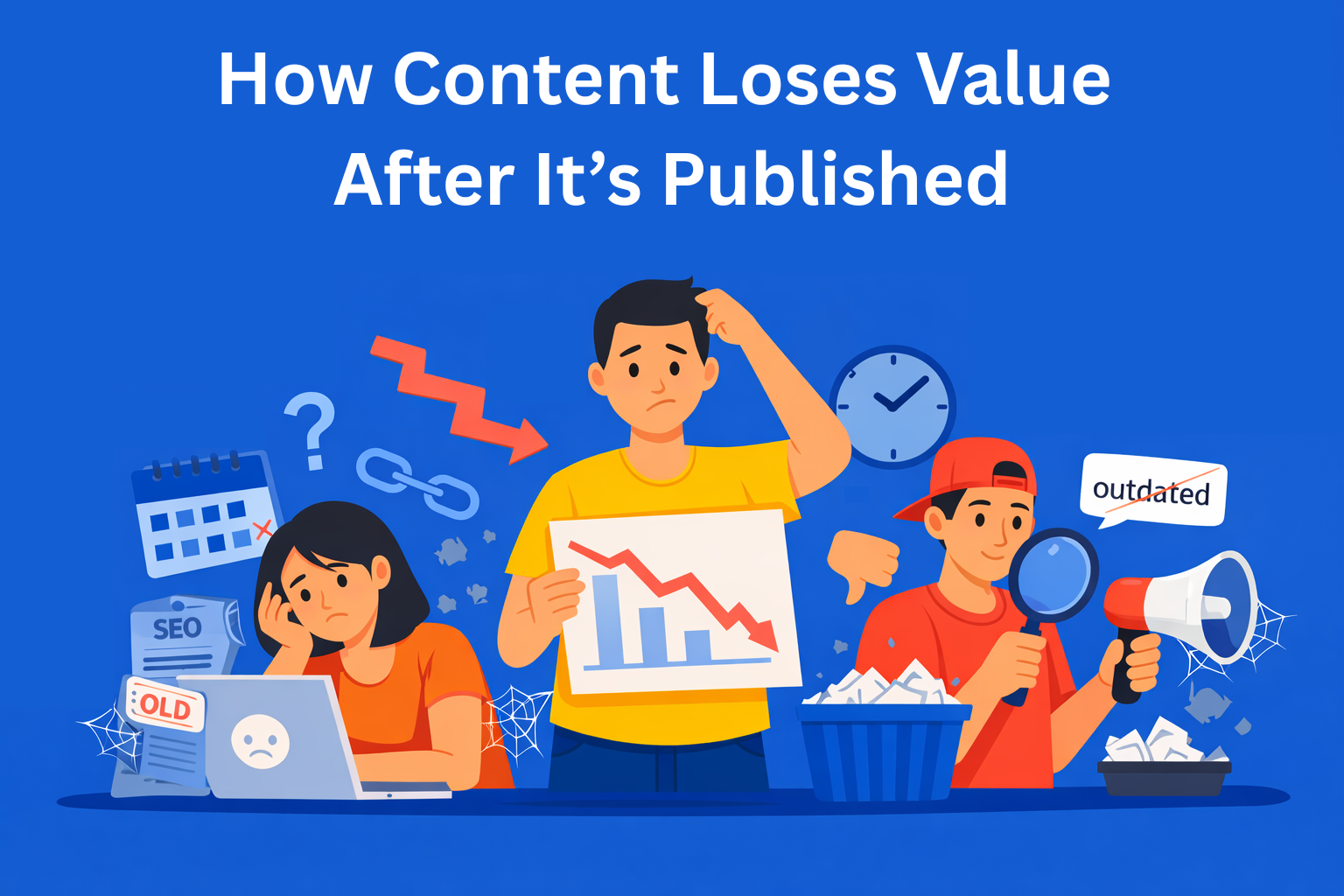The Ethics of Using AI to Rewrite Competitor Content
AI makes rewriting competitor content easy, but is it ethical? Learn where to draw the line between inspiration and plagiarism, legal risks, and best practices for using AI the right way in content marketing.

AI tools are everywhere these days. If you work in content marketing, you know how tempting it is to find a great blog, drop it into ChatGPT, and say: “Make me a version for my brand.” Time saver? Absolutely. Result? Almost instant content. But… where do we draw the line between inspiration and rewriting? Is it okay? And more importantly, is it ethical?
This question pops up more and more in marketing circles, especially when competition is fierce, and every idea feels like gold. Let’s break this down and figure out what’s acceptable.
Key Takeaways
- Plagiarism vs. Rewriting - Copy-paste is illegal; simple paraphrasing without added value is still unethical.
- Copyright applies instantly - Just because AI rewrites it doesn’t mean you avoid legal risk.
- Use AI for inspiration, not duplication - Brainstorm, find gaps, and add unique insights instead of producing clones.
- Originality builds trust - Competitor rewrites hurt credibility and brand voice.
- Follow the 80/20 rule - At least 80% of your content should be unique, with AI as a supporting tool, not the main writer.
What Does “Rewrite” Mean and How Is It Different from Plagiarism?
First, let’s clarify the terms. Plagiarism is when you copy someone else’s content word for word and present it as your own. That’s not only unethical but also a legal risk.
On the other hand, an AI rewrite is more subtle. The tool paraphrases the original text, changes the structure, adds a different tone… but the core topic stays the same. So, is that still plagiarism dressed up nicely? Or is it more like reading a few blogs on a topic and writing your own take? It’s a thin line, no doubt.
The Legal and Ethical Perspective
Copyright laws are clear - a text is protected as soon as it’s written. Copy-pasting is a no-go. But what about paraphrasing? That’s where the gray area begins. Legally, if you add significant value and original ideas, it might be acceptable. Just swapping words? That’s not enough.
Ethically, it gets even trickier. Maybe it’s not illegal, but is it fair? Imagine someone takes your blog, tweaks it a bit, and publishes it under their name. You wouldn’t like that, right? If we’d be upset when it happens to us, why do it to others?
Arguments FOR and AGAINST AI Rewriting
FOR:
- Speeds up content creation.
- Can serve as a starting point.
- Adding fresh data or a new angle can create great content.
AGAINST:
- Loss of originality.
- Your brand might look like a copycat.
- Possible legal trouble if you overdo it.
So, what carries more weight? If your only goal is to churn out posts at any cost, this might seem like a win. But if you’re building credibility and brand reputation, originality wins every time.
When Is It Ethical to Use AI for Inspiration?
The keyword here is inspiration. Use the topic as a base, review what competitors wrote, spot the gaps, and figure out how to add more value. If AI is just “rehashing” content, that’s not okay. If it’s helping you brainstorm new ideas based on trends, that’s a different story.
Add your voice, your experience, real-life examples. AI doesn’t know your audience better than you do. At the end of the day, authenticity stands out.
Best Practices for Ethical AI Use
- The 80/20 Rule: 80% original content, 20% inspiration.
- Check unique value - does your blog bring something new?
- Use AI for brainstorming, not copy-paste jobs.
- If you take an idea, make it your own and back it up with original data.
Conclusion: The Future of Ethics in AI Content Marketing
AI is changing the game, no doubt. But one principle remains - audiences appreciate originality and honesty. Instead of competing on who rewrites faster, let’s compete on who creates better.
Inspiration? Absolutely fine. Copying? Not so much. At the end of the day, AI is just a tool. How we use it - that’s on us.






